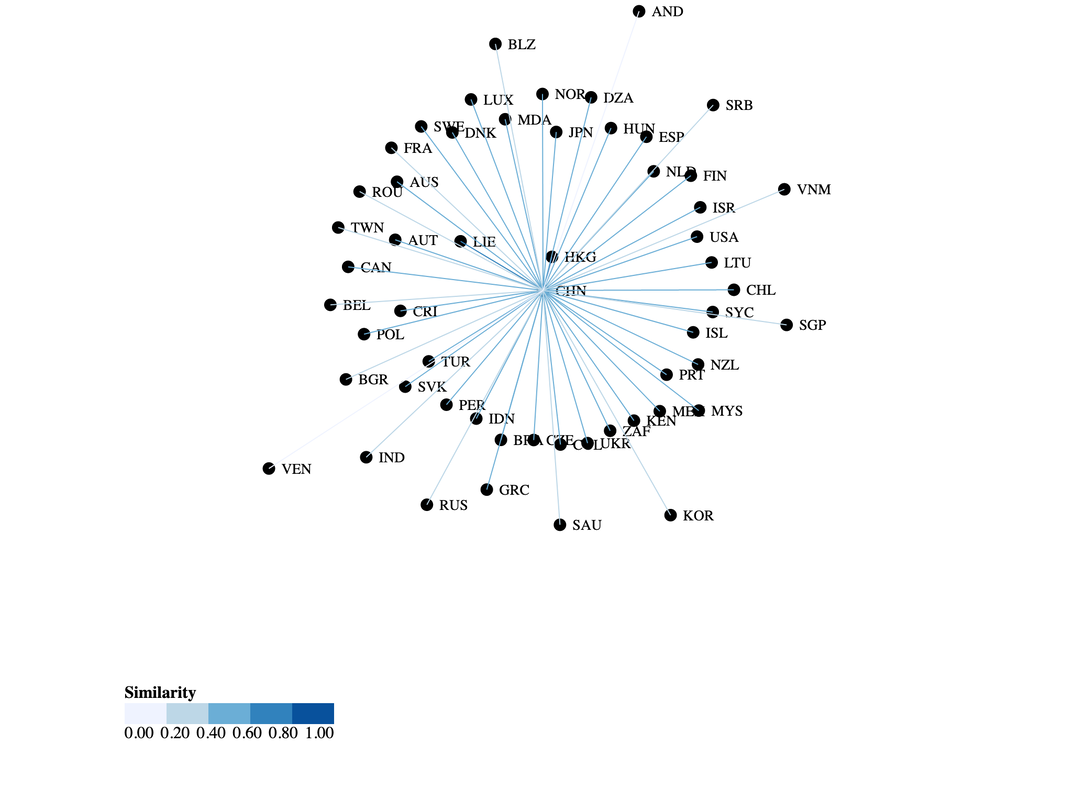 The internet, as it exists today, is an artifact of a time in which global cooperation seemed reasonable, even inevitable. While the process of building the internet required difficult trade-offs—trading security for simplicity, for example—as a world we produced a system that, more or less, works together. But the free flow of information online is now under threat by growing fragmentation across national borders. This internet fragmentation is both as a driver and a reflection of growing fragmentation in the world order. The effort by the U.S. government to ban the Chinese viral video app TikTok is a reflection of this reality: a response by the U.S. government to growing Chinese influence manifested online, resulting in a splintering global internet. Internet policy and international affairs move together. Throughout the internet’s history, its major stakeholders have made trade-offs around how different social and technical systems interoperate. Security is one such trade-off. Contrary to popular belief, security was indeed considered in the internet’s original design; however, deploying a decentralized, open architecture was difficult to balance against security requirements. Erring on the side of creating interoperable building blocks, a trade-off emerged: make simple, fundamental elements and address security issues as they emerged. The system’s interconnectedness served as a shared incentive, and the internet as we knew it grew—though not without bumps along the road—to become global. But the global internet is now under existential threat from fragmentation. And the problem with fragmentation is that it puts global cooperation at risk, as differences in the internet across borders are predictive of international trade and military relations, according to research conducted as part of the University of California, Berkeley Daylight Security Research Lab. Such findings should recast discussions about internet fragmentation. Internet fragmentation does not concern narrowly the “free” movement of information (an ideal that has never been fully accomplished), nor does it merely challenge the internet’s “distributed” design, another ideal whose implementation has only ever been partial. Rather, a fragmenting internet is representative of and has the possibility of contributing to a fragmenting world order. Such analysis of a fragmented internet looks at different layers of the internet “stack”—the building blocks that cobbled together comprise the internet—to quantify, for example, how similar France’s internet is to that of Germany, Canada, or Thailand. Using these country-to-country comparisons, we produce a network graph, with each country related to every other in a web of national internets that are, more or less, interoperable with one another. The graph reveals clusters that correlate with everything from military alliances to trade agreements—even to political principles such as freedom of speech. For example, content blocking patterns in European Union countries are significantly more similar to one another than they are to non-EU countries. The same is true of NATO countries. Notably, these findings do not indicate that blocking policies cause, for example, freedom of speech to decline. Nor that restrictions on free speech cause a country to block websites. Rather, they indicate that website blocking patterns—the types of websites a country blocks—reveal information about a country’s position on the global stage. China’s blocking patterns are relatively unique, though they share similarities with Hong Kong and Lichtenstein.In one sense, the strength of that relationship is unsurprising. The internet is, and has always been, both a product and a driver of political realities on the ground. From the role it played during the Arab Spring in 2012 to the way it has been used as a tool to interfere with the U.S. elections in 2016, the internet is a powerful tool for driving political change. Internet fragmentation has always existed, but the fact that the internet has evolved the way it has, becoming global, is evidence that interoperability is more than just aspirational. World-scale collaboration, while difficult, is possible. It is as possible now as it was in the late 20th century. Interoperability opens doors to participation and invites collaboration. To this end, the internet, and the threats to its operation as a global system, are a continuous invitation to work together. Not to agree, per se, but to agree to continue talking. To continue speaking the same proverbial language. Interoperability is not an end in itself. It is a means toward achieving shared goals. As cross-border goals emerge, from containing COVID-19 to battling climate change, interoperable ways of observing and discussing the world become more crucial. Moving forward, policymakers must safeguard the fundamental interoperability of the global internet. Rules and legislation should prevent fragmentation, enshrining the principles of a decentralized network made from open, interoperable components. As our research shows, the rewards for doing so come in trade, military alliance and social freedoms. To get to these regulations, policymakers must understand the internet’s ecosystem. Climate change provides an illustrative example: Cooperation is necessary, but action is impossible without understanding. Our ongoing research serves a part—a small part—in making the interoperable internet more understandable, and immediately relevant, to policy. Dr. Nick Merrill directs the Daylight Lab at the UC Berkeley Center for Long-Term Cybersecurity. His lab produces tools for understanding and addressing critical security issues. Dr. Konstantinos Komaitis is the senior director for Policy Strategy and Development at the Internet Society. Note: this post was originally posted at: https://www.brookings.edu/techstream/the-consequences-of-a-fragmenting-less-global-internet/ Comments are closed.
|
|
